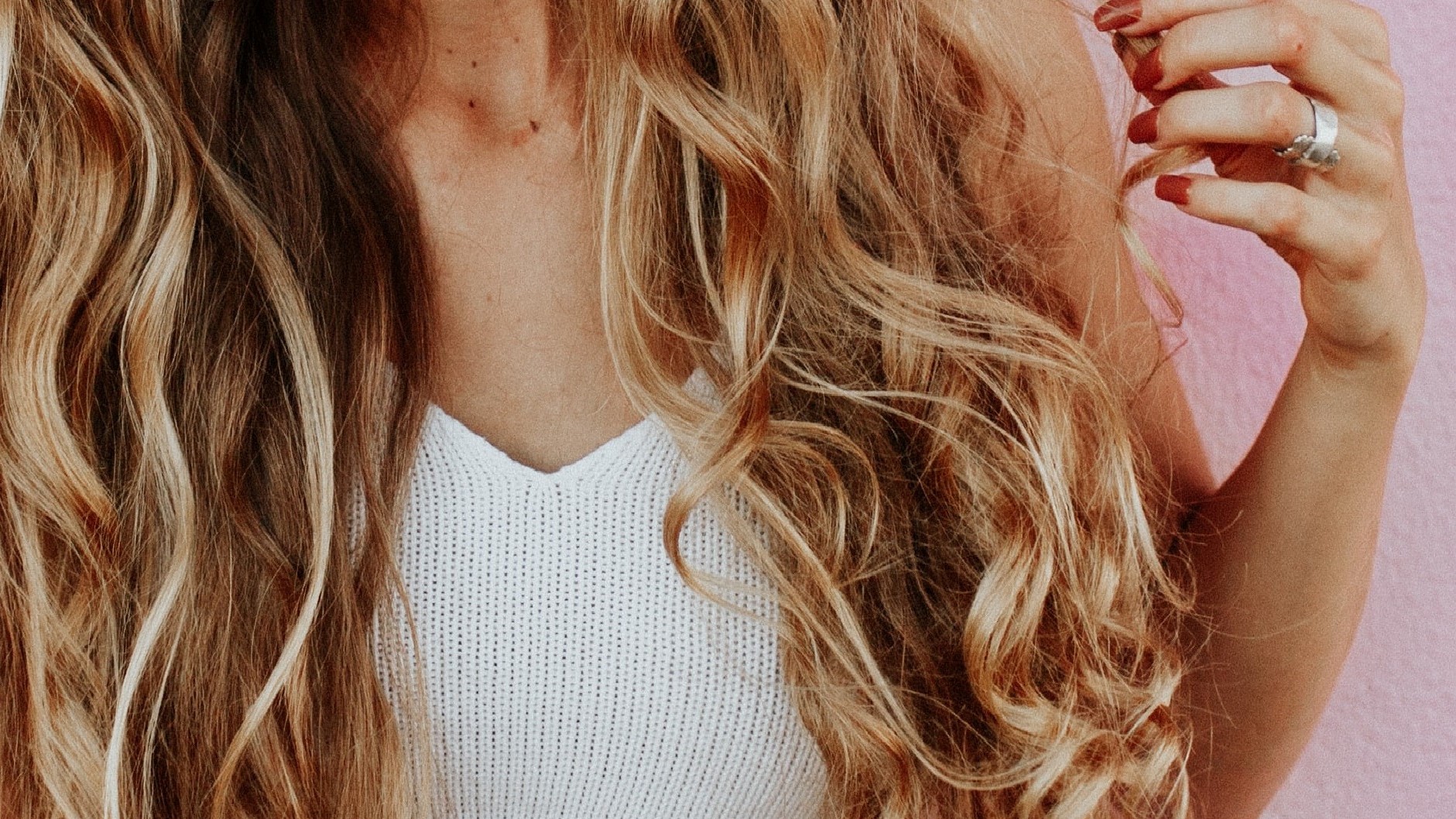To find the answers, we consulted two hair glue removal experts: Emmy nominated veteran makeup artist Kerrin Jackson and licensed cosmetologist/beauty editor Ghanima Abdullah.
Both our experts recommended that for starters, you should check to find out what kind of glue is in your hair. The best practices for removal differ depending on the type of glue.
1. Latex-based Glue
Latex-based glues typically come in liquid form. When exposed to heat, they harden into a flexible, rubbery base to secure temporary extensions to the scalp. Latex glues are definitely not permanent -- extensions that are attached with this kind of glue last for a maximum of three weeks before they have to be either removed or reapplied.
Jackson says: "If you have ended up with a latex-based glue in your hair, the kindest method of removal is good, old-fashioned warm water and soap. Gently build up a lather and massage the soapy water in the area, and soon the latex will lift."
"I have spent many a day on set removing latex from actor's faces and hairlines. Latex is the base for most specific aging makeup products, designed to wrinkle the actor's skin with the dried latex. It can take a while, so be patient."
If soap and water don't work, Abdullah recommends baby oil. "Soak the area generously with oil, add a shower cap, and wait for at least 20 minutes. Depending on how much glue we're talking about, it may take 20-45 minutes for the glue to break down. Use a wide-tooth comb, then a finer comb to continue to get it out. Wash your hair thoroughly afterward."

2. Silicone-based Glue
Silicone-based hair glues don't require heat to harden and can keep extensions/wigs in place for up to six weeks. Unfortunately, they're also a smidge trickier to remove than their latex-based cousins.
Jackson says: "If the glue is a silicone-based product, you will want to avoid utilizing water as this won't break down the silicone. You will need a solvent-based remover to break down the bonding chemicals. 99% isopropyl alcohol is recommended, but keep in mind that it may actually be a little harsh. You can look for 70% alcohol, or rubbing alcohol instead. They will be gentler on your scalp."
Abdullah adds: "Pour a generous amount on a towel and dab the area until the glue softens. For resistant areas, hold the towel to the glue for 30 seconds at a time. Once the glue is soft, it can be gently removed with a comb. After you're finished, condition your hair thoroughly to remove any dryness caused by the alcohol."
3. Keratin polymer-based glue
Keratin polymer glues are made with a protein base and come in semi-hard chips. The chips are often attached to the hair to create strand-by-strand extensions. Keratin becomes malleable under high heat exposure and solidifies at room temperature
Jackson says: "If you are trying to remove a keratin polymer or polymer-based glue from your hair, again you will want to use a solvent to help remove the adhesive. A citrus-based solvent like Ghost Bond Ghost Buster should assist in dissolving the glue. The heat will also help to loosen the polymer, so using warm to hot water will work well in conjunction with the remover. Remember to always use gloves when using solvent-based removers and try to avoid getting the solvent on your scalp."

What about if you don't know what kind of glue was used?
Unsure what kind of glue was applied to your hair? Adbullah recommends that you go straight to the source: "Don't hesitate to ask the stylist who installed your weave or extensions which product they recommend to remove the glue. There are quite a few products available, and your stylist can recommend the perfect match for what's in your hair."
What about the remaining bits that I just can't get out?
Abdullah's ultimate backup plan is surprisingly simple: apply ice. "Ice works by hardening the glue so much that you can slide it right out of your hair. This works great for stubborn particles that might remain after you've tried another method - and ice won't conflict with anything you've used already. While you're freezing the water insert a spoon so you'll have a comfortable handle. Then hold the ice on the area for 15 minutes and gently pull the glue out."
Thirsty for more hair knowledge? Here's what to check out next:
How Often Should You Brush Your Hair?
We talked to the experts to find out
Living With An Oily Scalp + Dry Ends
#unfair, right?
How Long Does It Take For Hair To Grow Back?
How long does it take for hair to grow back after a bad cut?
Is Hair Alive?
The answer might be a little more complicated than you thought 👀




